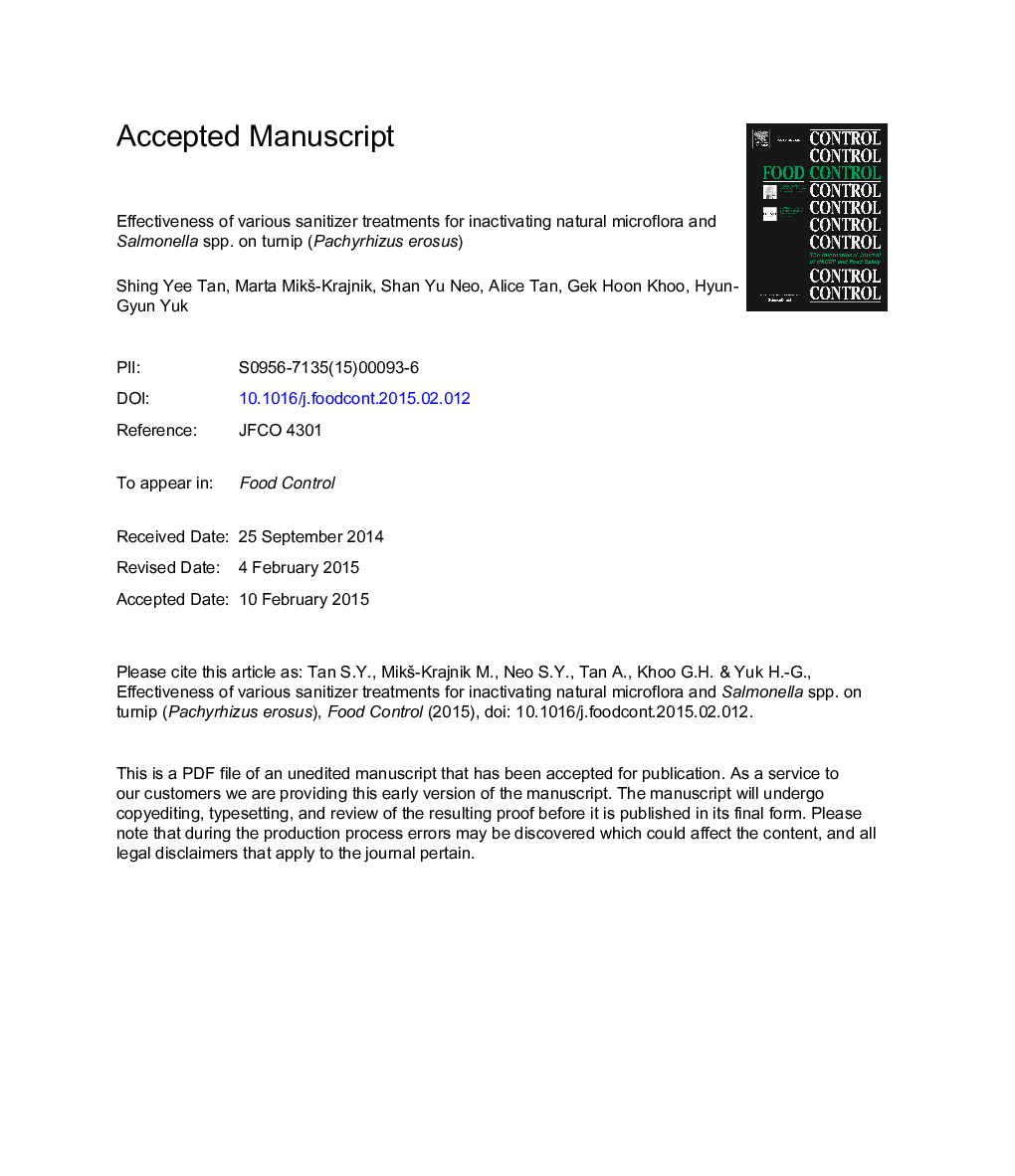| Article ID | Journal | Published Year | Pages | File Type |
|---|---|---|---|---|
| 6390860 | Food Control | 2015 | 42 Pages |
Abstract
The increasing occurrence of outbreaks associated with consumption of contaminated fresh produce suggests the need for effective sanitizing treatments on these commodities. In this study, six sanitizers including acid electrolyzed water (AcEW, 5 min), acidified sodium chlorite (ASC, 1200 ppm, 3 min), cetylpyridinium chloride (CPC, 1%, 3 min), chlorine (200 ppm, 3 min), ozonated water (2 ppm, 5 min) and sodium dichloroisocyanurate (NaDCC, 150 ppm, 10 min) were tested against natural microflora and inoculated Salmonella spp. on peeled turnips (Jicama). Among these sanitizers, ASC was found to be the most effective sanitizer, resulting in the reduction of 2.09 and 2.13 log CFU/cut-turnip in aerobic mesophilic count and yeasts and molds, respectively, as well as 3.91 log CFU/turnip reduction in Salmonella spp. Storage study was performed to evaluate the effect of aerobic or vacuum packaging as well as storage temperature on the microbiological and physical quality changes of ASC-treated shredded turnips. The results indicated that treated turnip kept in aerobic conditions at 4 °C for up to 9 days maintained a microbial count of less than regulatory limits (5 log CFU/g) and retained the color and firmness. This study suggests that ASC treatment followed by aerobic storage at 4 °C would be the best handling practice for improving microbiological safety and maintaining good physical quality of commercially produced shredded turnips.
Related Topics
Life Sciences
Agricultural and Biological Sciences
Food Science
Authors
Shing Yee Tan, Marta Mikš-Krajnik, Shan Yu Neo, Alice Tan, Gek Hoon Khoo, Hyun-Gyun Yuk,
